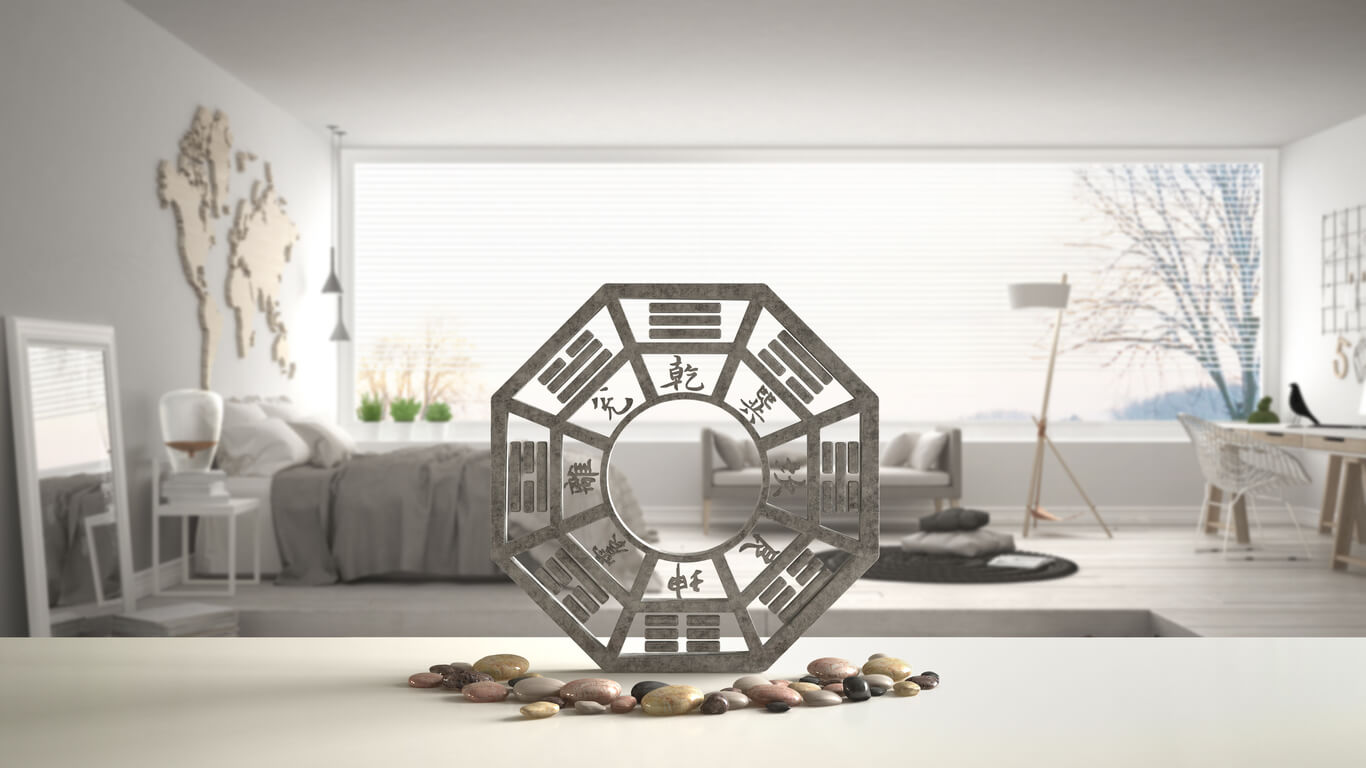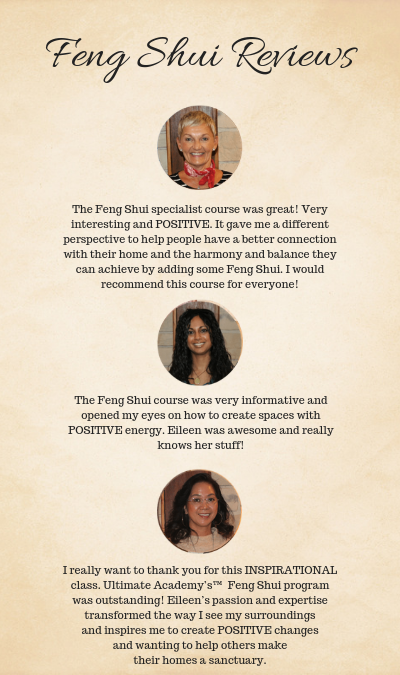Understanding the Differences Between Classical and Modern Feng Shui

“When you do Feng Shui you tell the Universe you want a better life – first by setting your intention then by taking action.” – TheFengShuiStudio.com
As any passenger on a long road trip can attest, music is a very personal thing. Whether it is classical, oldies, alternative, pop, easy-listening, country, or rap, everyone has a favourite. The power of music, however, is not diminished by its innate ability to polarize its listeners.
In fact, its very essence is strengthened by this seemingly divisive quality. The underlying passion of these individual preferences increases its universal power. It does not matter what type of music you enjoy; the power lies in the enjoyment.
Feeding this energy, because of the respect for music’s origins, is the understanding that without the symphonies created hundreds of years ago, today’s music would not exist. The intricate melodies of classical music will never lose their wonder; crowds still gather in darkened amphitheatres to lose themselves in the beauty of scores written long ago. Music’s growth, its morphism into our modern-day tracts, is only possible because of the chords strung together hundreds of years ago.
There are many parallels between the growth of music, and that of the practice of Feng Shui. Classical Feng Shui and Modern Feng Shui can polarize their followers. But just like music, the underlying passion of these preferences increases the universal power of Feng Shui.
Does it matter what approach you take? Or is the importance in the practice itself? What exactly is Classical Feng Shui? And how is it different from Modern Feng Shui?
Classical and Modern Feng Shui: Understanding the Difference
Classical Feng Shui
Classical Feng Shui originated in China thousands of years ago. Originally used to select burial sites and safe locations for settlements, the practice analyzes landforms and compass readings to select the ideal location for a home or business.
Classical Feng Shui links the destiny of humans to their environments; the fate of a homeowner’s health, wealth, and happiness, is believed to be determined by the surrounding landforms.
This approach is also based on directions and uses the points of a compass to analyze Chi (the energy that encapsulates all living things). Each cardinal direction (north, south, east, and west) is associated with one of the Five Feng Shui Elements: Wood, Fire, Earth, Metal, and Water. When these Elements are balanced, nature is in harmony. Classical Feng Shui therefore incorporates the use of a compass, as well as mathematics, a homeowner’s birthdate, and numerology.
This traditional approach to living in harmony with one’s surroundings is still utilized today. The purpose and application of Feng Shui is to understand how the visible and invisible forces come together so that one can calculate and interpret the inherent energy structure of a particular home or piece of land, and make the appropriate recommendations for how to manipulate (harness or avert) this information to attain the best results.
In other words, the external landscape and a home’s direction are analyzed to determine how ideal the location is; “a beautiful home is a waste if the energy of the surrounding landscape is not favourable or supportive”. Proponents of the Classical method believe the Feng Shui compass interacts with Earth’s energy. When used properly, all other energies become balanced, creating a path towards true happiness.
Modern Feng Shui
Just like the music of today, Modern Feng Shui is the result of an evolution. Modern Feng Shui honours its origins; it includes aspects of Classical Feng Shui while incorporating modern factors such as electromagnetic pollution, environmental psychology, space clearing, and clutter management.
The modern approach focuses more on a sense of space. It analyzes floor plans, the layout of a room, decor, and furniture placement. Although Modern Feng Shui is less complex and not as concerned with calculations and compass directions, it still focuses on balancing the Five Feng Shui Elements.
Similar to music, choosing between Classical and Modern Feng Shui ultimately comes down to personal preference. Both focus on working with your natural energies to create balanced, prosperous, healthy, and harmonious environments.
Feng Shui has always been used to cultivate the flow of positive energy, and this trend continues to grow. Homeowners crave a sense of empowerment; a method of creating a space which supports their health, wealth, and happiness.
Feng Shui can be used as a tool to improve your life, to add meaningful images and symbols, and to empower and boost your personal and professional life. At Ultimate Academy®, we honour the Classical approach while focusing on Modern Feng Shui.
Graduates of the Certified Ultimate Feng Shui Specialist™ program learn how to incorporate both Classical and Modern Feng Shui into every project. For instance, each Chinese symbol utilized originally in Classical Feng Shui represents a specific energy. Our graduates validate this history and incorporate it into today’s interior design.
The Power of Feng Shui:
Regardless of whether you utilize the Classical or Modern approach, Feng Shui provides an opportunity to use your physical space to help create a better life. Feng Shui helps you to set priorities in accordance with your values, needs, and wants. It encourages you to be mindful; to activate and cultivate your innate resources, empowering you to make changes, while connecting you with the energies of life.
Today’s society craves this ability to set intentions; to take control of their happiness; to use Feng Shui as a tool to help them grow, develop, and thrive. Practicing either Classical or Modern Feng Shui provides a method for activating one’s intentions. It can help rid a home of negative energy, clearing the path for positive energy to enter and flow freely.
Graduates of Ultimate Academy’s® other programs, such as the Certified UltimateStager™ and Certified Ultimate Professional Organizer™ program, hire Feng Shui Specialists™ to provide their expertise. Using a variety of strategies, symbols, and techniques, Feng Shui Specialists™ cultivate positive energy.
In conjunction with staging, decluttering, and organizing, this can help sell a home, or aid a family in their journey towards a more harmonious existence. Using a home’s floor plan, as well as a room’s layout, decor, and furniture placement, a Feng Shui Specialist™ can create a balanced space that supports the client’s health, wealth, and happiness.
Frequently Asked Questions About Feng Shui
Classical Chinese Feng Shui is an ancient Chinese practice that seeks to harmonize individuals with their surrounding environment. It is based on the Taoist understanding and interpretation of nature, particularly on the theory that the land is alive and filled with Chi, or energy.
This practice involves the meticulous placement and orientation of various objects and structures to tap into positive energy flows, aiming to enhance health, wealth, and personal relationships.
Classical Feng Shui uses tools such as the Luo Pan (a specialized compass) and concepts like the Five Elements (wood, fire, earth, metal, and water) to analyze and optimize the energy of a space.
The classical Bagua is a fundamental concept in Feng Shui that acts as an energy map of the eight different life areas: wealth, fame, love and marriage, family and health, children and creativity, helpful people and travel, career, and knowledge and wisdom. Each area corresponds to a specific aspect of life and is linked to a particular direction, element, and color.
The Bagua map is used by Feng Shui practitioners to analyze a space (like a home or office) and determine which areas need adjustment to improve the flow of Chi, thereby enhancing the inhabitants’ quality of life.
To learn how to use this tool effectively, enroll in Ultimate Academy®’s Feng Shui course. You will learn to map your own home or the homes of your clients to improve their lives.
The first rule of Feng Shui is to clear the clutter. Clutter is believed to have a negative impact on the flow of Chi, or energy, within a space. It can create stagnant energy and blockages, leading to potential negative effects on the inhabitants’ well-being and life areas.
By removing clutter, you allow energy to flow freely, which is essential for creating balance, harmony, and a foundation for implementing further Feng Shui principles and enhancements in your environment.
People believe in Feng Shui for various reasons, primarily because it offers a way to harmonize their living and working spaces with nature and the surrounding environment.
Many find that applying Feng Shui principles brings about noticeable improvements in their lives, such as enhanced well-being, increased wealth, improved relationships, and a general sense of harmony and peace.
Feng Shui’s holistic approach, which considers physical, emotional, and spiritual well-being, resonates with those seeking a balanced and mindful lifestyle.
Additionally, its ancient wisdom and practical applications provide a sense of connection to traditional knowledge and cultural heritage.
Feng Shui music is designed to promote the flow of Chi (energy) in an environment, contributing to the balance and harmony of one’s surroundings. This genre of music typically incorporates natural sounds, like flowing water, bird calls, or wind, and is composed to create a peaceful, serene atmosphere.
The intention behind Feng Shui music is to positively influence the listeners’ energy fields, helping to reduce stress, enhance relaxation, and improve overall well-being. It is often used during meditation, yoga, relaxation exercises, or simply to create a calming ambiance in homes or workplaces.







